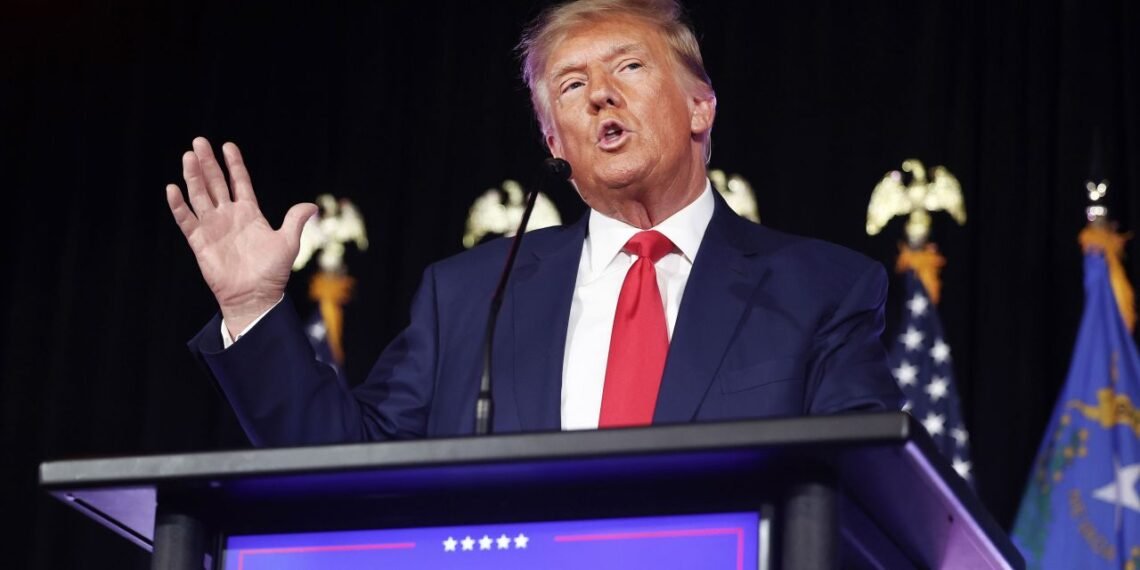The Federal Circuit Court ruled 7–4 that Trump overstepped his authority by invoking emergency powers to impose tariffs, calling taxation a core power of Congress.
BY PC Bureau
US President Donald Trump on Saturday rejected a federal appeals court ruling that declared most of his import tariffs unlawful, vowing to take the fight to the Supreme Court. Trump insisted his trade measures remain intact, calling them vital to protecting American workers and industries.
The appeals court decision, handed down Friday, struck a major blow to one of Trump’s signature economic policies. While judges invalidated most of the tariffs, they allowed them to remain in effect until October 14, giving the administration time to pursue an appeal.
In a statement on his Truth Social platform, Trump stressed that the tariffs have not been removed. “ALL TARIFFS ARE STILL IN EFFECT! Today a Highly Partisan Appeals Court incorrectly said that our Tariffs should be removed, but they know the United States of America will win in the end,” he wrote.
READ: PM Modi Says Stable India–China Ties Crucial for Multipolar World
Trump warned that eliminating the tariffs would inflict “deep financial harm” on the country, leaving it weaker in the global economy. He argued that his trade measures guard against “enormous trade deficits” and shield American farmers, manufacturers, and workers from unfair foreign competition.
Linking the issue to the Labor Day weekend, Trump urged Americans to view tariffs as a tool for strengthening domestic industry. He described them as the most effective weapon to promote products “Made in America” and restore the nation’s financial standing.
Trump is screeching about the appeals court ruling finding his disastrous tariffs illegal (they are). He claims “if allowed to stand, this decision will literally destroy the United States of America.” No @realDonaldTrump, YOU are literally destroying the United States of America pic.twitter.com/y5mYxNvcvM
— Andrew—#IAmTheResistance—Wortman (@AmoneyResists) August 29, 2025
“For many years, tariffs were allowed to be used against us by our uncaring and unwise Politicians. Now, with the help of the United States Supreme Court, we will use them to the benefit of our Nation, and Make America Rich, Strong, and Powerful Again!” Trump declared.
Trump Overstepped Authority on Tariffs, Appeals Court Rules
A federal appeals court has ruled that former President Donald Trump exceeded his legal authority when he imposed sweeping import tariffs under a decades-old emergency powers law, striking at the core of one of his signature economic policies.
In a 7–4 decision issued Friday, the U.S. Court of Appeals for the Federal Circuit said Trump unlawfully invoked the International Emergency Economic Powers Act (IEEPA) to justify tariffs on countries including China, Mexico, and Canada. The court noted that IEEPA, enacted in 1977 to manage national emergencies, does not grant presidents the authority to impose taxes — tariffs included — calling taxation “a core Congressional power” under the Constitution.
READ: Assam Villagers Protest Naga ‘Atrocities’ at Merapani Border
The ruling upholds a lower court decision and specifically invalidates Trump’s so-called “Liberation Day” tariffs and related levies introduced earlier this year. However, the court stayed its order until October 14, allowing the tariffs to remain in place while the administration appeals to the Supreme Court.
White House officials, along with Treasury Secretary Scott Bessent and Commerce Secretary Howard Lutnick, defended the tariffs and signaled an aggressive legal challenge. Trump blasted the ruling as “highly partisan” and warned it could trigger “economic disaster” if left intact.
The court’s decision makes clear that Trump’s reliance on IEEPA went beyond the limits of presidential power. Judges emphasized that the law contains no provision for tariffs and that only Congress can impose taxes. The case was brought through two consolidated lawsuits — one by small businesses and another by 12 Democratic-led states — both arguing that Trump sidestepped Congress in setting trade policy, in violation of the Constitution’s allocation of taxing authority.
For now, the tariffs remain in effect until October 14, giving the administration time to seek Supreme Court review. The case also returns to a lower court for additional proceedings on how broadly the ruling applies.
Trump and senior officials have warned that striking down the tariffs will weaken U.S. leverage in trade negotiations and jeopardize national security. Treasury and Commerce officials cautioned it could invite retaliation from allies and destabilize existing trade agreements.
If the ruling is upheld, it would mark a significant curb on presidential power, affirming that tariffs cannot be imposed unilaterally under emergency laws and reshaping the scope of executive authority over U.S. trade policy.














